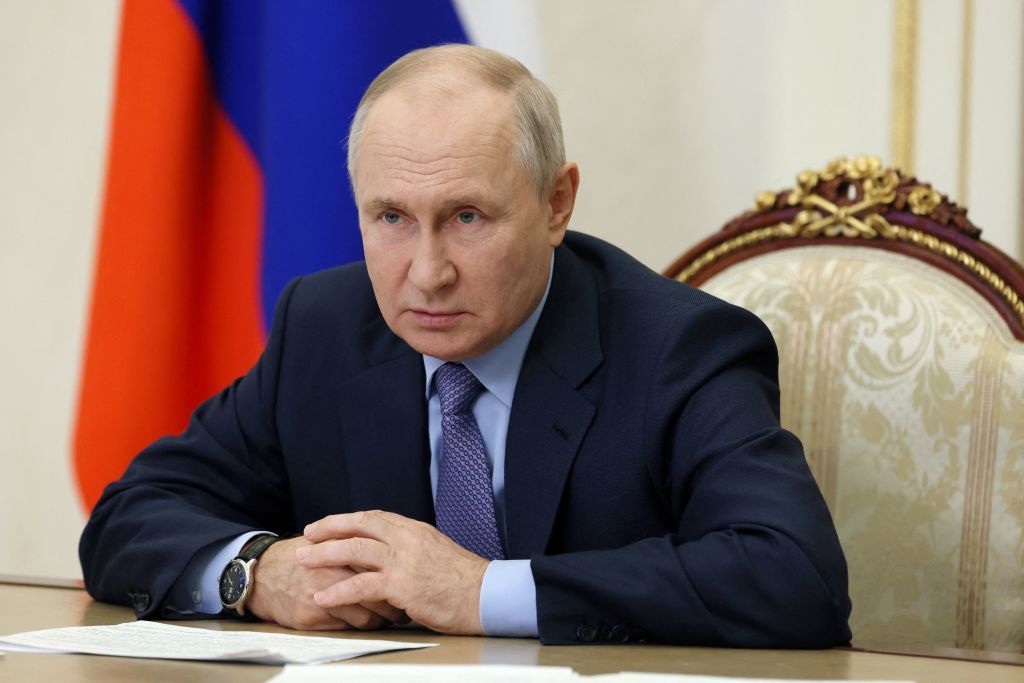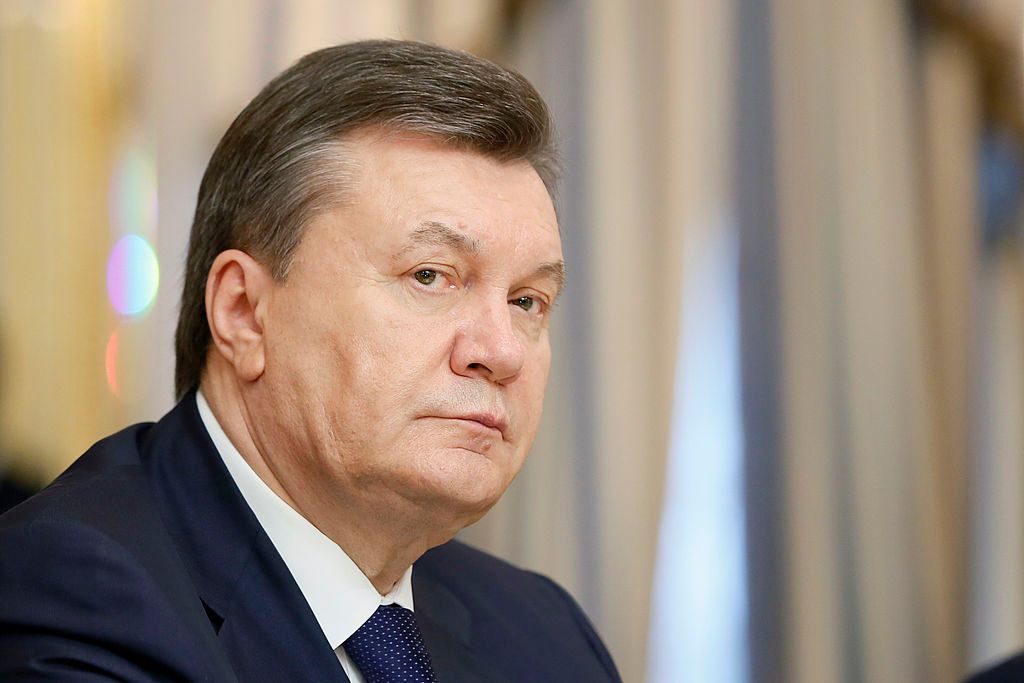Belarus Weekly: Putin, Lukashenko meet in Minsk; Yanukovych's plane spotted in Homel

Russian President Vladimir Putin and Alexander Lukashenko of Belarus meet in Minsk to discuss security and economy after both countries recently announced exercises involving tactical nuclear weapons.
As Putin visited Minsk, former Ukrainian President Viktor Yanukovych's plane was spotted landing in the Belarusian city of Homel. Belarusian political analyst Alexander Friedman suggests possible reasons for the pro-Russian former Ukrainian president’s visit to Belarus in the opinion section.
Poland unveils $2.5 billion "Shield East" Plan to fortify 700 kilometers of its eastern border, including that with Belarus and Russia.
Lukashenko appoints new army chief of staff known for hostile rhetoric against neighboring Lithuania.
Human Rights Watch releases a report on the Belarusian authorities' total control over the legal profession and repression of lawyers in Belarus.
VPN services partially blocked in Belarus during the elections to the Coordination Council, the representative body of the country’s opposition in exile.
Putin visits Belarus amid nuclear drills
Russian President Vladimir Putin visited Minsk on May 23-24 amid a series of foreign trips following his fifth inauguration.
The visit coincided with ongoing tactical nuclear drills involving both Russian and Belarusian forces.
The Minsk visit wasn’t announced in advance, and came after Putin visited China following his inauguration on May 7. The visit to Belarus underscores the country’s role as one of Russia’s top allies in its war efforts against Ukraine.
While Putin and Lukashenko meet almost every month, typically Lukashenko visits Putin in Russia. Putin's arrival to Belarus occurred as Russia held tactical nuclear drills that it announced earlier in May.
Belarus also announced a snap inspection of military units capable of using tactical nuclear arms, and was expected to join Russia in a second stage of exercises to practice the use of non-strategic nuclear weapons.
Both politicians dismissed foreign concerns over the nuclear drills. Lukashenko claimed that this was the third drill since the alleged deployment of Russian tactical nuclear warheads in Belarus in 2023.
Putin said that Russia’s training in the use of nuclear weapons was a routine procedure.
“The only difference is that after the deployment of part of the non-strategic nuclear capabilities in Belarus, we are conducting them together with our Belarusian allies,” Putin said.
At a press conference following his talks with Putin, Lukashenko claimed they had reached an agreement on oil and gas pricing for Belarus, a pivotal point in Minsk’s relations with Moscow.
While answering journalists’ questions, Putin repeated his allegation that Ukrainian President Volodymyr Zelensky is not a legitimate president.
Poland reveals details of its $2.5 billion eastern border fortification plan
Polish defense officials have revealed details of the “Shield East,” a $2.5 billion program to fortify Poland’s nearly 700-kilometer-long eastern border with Belarus and Russia with anti-drone surveillance and fortifications on the ground.
The program, part of NATO’s eastern flank joint regional defense infrastructure plan that Poland is carrying out with the Baltic states Lithuania, Latvia, and Estonia, was presented at a press conference on May 27.
“This is the largest operation to strengthen Poland’s eastern border, NATO’s eastern flank, since 1945,” Polish Defense Minister Wladyslaw Kosiniak-Kamysz said, emphasizing that the plan is based on “deterrence and defense.
Deputy Defense Minister Cezary Tomczyk said the 10 billion złoty ($2.5 billion) investment in Poland’s defense lines would start in 2025 and would be finished by 2028. According to Tomczyk, the Polish government is financing the construction, but is also hoping to secure EU funds as the system will fortify the EU.

The Chief of the Polish General Staff, Wieslaw Kukula, said that the border fortifications will include anti-tank barriers and ditches, a network of bunkers and shelters, anti-drone monitoring, defense towers, and zones for potential mine fields.
However, the latter would only be laid in the case of “imminence of war,” Kukula said.
He said that while the fortifications are a response to ongoing hybrid threats from Russia, they are designed to “identify, slow down, and build zones of destruction in such a way as to effectively destroy the enemy even before (it gets to) the Polish border.”
The Polish government says that in addition to the artificial migration crisis, cyberattacks and attempted arson attacks organized by Russian and Belarusian special forces are attempts to destabilize the European Union.
Lukashenko appoints new army chief of staff
Belarusian dictator Alexander Lukashenko has appointed Major General Pavel Muraveiko, known for issuing threats against neighboring Lithuania, as chief of the Belarusian General Staff and first deputy defense minister, Lukashenko’s press office reported on May 23.
Previously serving as the first deputy secretary of the State Security Council, Muraveiko, is said to have been involved in state defense planning and in conducting major military drills – including joint exercises with Russia.
Muraveiko is known for his public threat to seize the area around the 100-kilometer Polish-Lithuanian border, known as the Suwalki gap, to restore the transit of goods to the Russian exclave Kaliningrad, which were suspended by Lithuania in compliance with EU-imposed sanctions.
“Lithuania actually forbade us to move our goods across the border,” Muraveiko said on Oct. 30. “From the perspective of banal logic, we have every reason to cut through a vitally important corridor for us by force of arms.”
The top military position has been vacant in Belarus since May 10, after the previous Chief of Staff Dzmitry Hulevich was dismissed – officially due to his age. However, Belarusian media outlets have suggested that Hulevich opposes Belarus’ involvement in Russia’s war against Ukraine, and has been speaking to his NATO counterparts.
Some Belarusian political analysts believe that the appointment of the hawkish Muraveiko ahead of Putin’s two-day visit to Belarus was a move to demonstrate loyalty.
Human Rights Watch: Belarus’ authorities have total control over the legal profession
Amidst systematic and widespread repression, the Belarusian authorities have eroded the independence of the legal profession and persecuted lawyers representing clients in politically motivated cases, human rights organizations have said in a joint report.
Human Rights Watch, the Belarusian Association of Human Rights Lawyers, and the Right to Defense Project published the report on May 27.
The 95-page report focuses on the attempts by the regime of Belarusian dictator Alexander Lukashenko to undermine the right to legal counsel in politically motivated cases, and on the politically motivated repression of attorneys in Belarus.

“The Belarusian authorities have turned the judicial system into a mockery of justice and deprived Belarusians of their right to a fair trial and equal protection under the law,” said Anastasiia Kruope, assistant Europe and Central Asia researcher at Human Rights Watch.
According to the Right to Defense Project, the total number of lawyers in Belarus has dropped from 2,200 in 2020 – before Lukashenko claimed a contested victory in the 2020 presidential elections – to 1,650 now.
Over 140 legal counselors have been disbarred by regional bar associations or have faced arbitrary license revocation by the Justice Ministry for defending their clients in politically motivated cases. The flimsy claim of “insufficient qualification” was used to disbar the specialists, who on average had 13.5 years of experience, and many of whom were previously celebrated for their excellence.
At least 23 lawyers have been detained, and six – Maksim Znak, Aliaksandr Danilevich, Vital Brahinets, Anastasiya Lazarenka, Yuliya Yurhilevich, and Aliaksei Barodka – are now serving sentences after being convicted in politically motivated trials. The prison sentences range from six to ten years.
Belarus partially blocks VPN services during elections among exiled opposition
Problems with access to VPN services in Belarus were observed on May 25 during the elections to the Coordination Council, the representative body of the country’s opposition in exile, Zerkalo.io reported.
It is unusual for the Belarusian authorities to interfere with VPN services – typically they resort to full shutdowns during protests, blocking certain pages or platforms, for example during Belarusian opposition leader Sviatlana Tsikhanouskaya’s New Year’s address.
The elections to the Coordination Council, held on May 25-27, were to create a directly elected representative body for Belarusians in exile. Belarusians abroad were invited to vote via the Belarus ID app; a web page created for Belarusians within the country, which has to be accessed with a VPN for security reasons.
Despite doubts among the opposition supporters surrounding the council’s relevancy and ability to impact the political crisis in Belarus, the authorities cracked down on its participants: criminal investigations were launched against all 257 candidates, 12 election coalitions were labeled extremist, and the voting infrastructure faced a massive denial of service (DDoS) attacks, with 17 million false requests – a number nearly twice the total population of Belarus.
The intimidation practices appear to have worked, as only slightly over 6,700 Belarusians voted in the elections.
Yanukovych in Belarus
On May 24, the Belarusian Hajun monitoring group said it had spotted the plane of former Ukrainian President Viktor Yanukovych landing in Homel, a city near the border with Ukraine. No public appearances or official communication were made regarding the visit. Yanukovych was previously seen in Belarus in March 2022 during the brief Russian-Ukrainian peace talks.
Coinciding with Putin’s visit, Reuters reported, citing five sources close to the Kremlin, that Putin was open to ceasefire talks, provided the current front lines would not change and the occupied parts of Ukraine would be recognized as remaining under Russian control.












